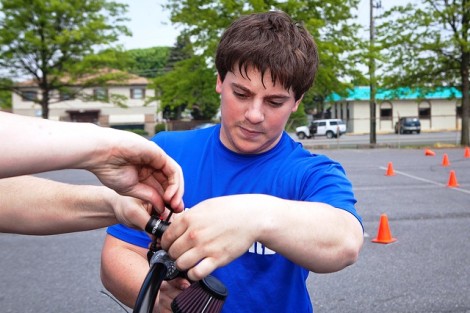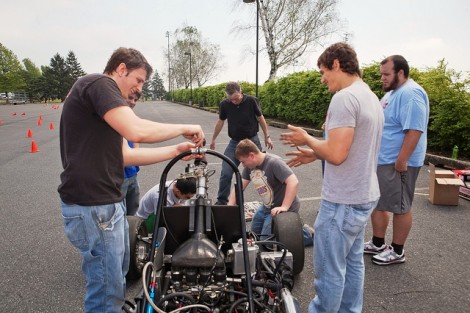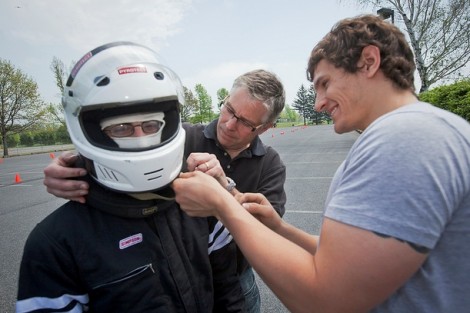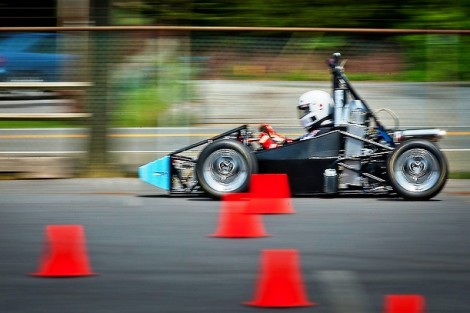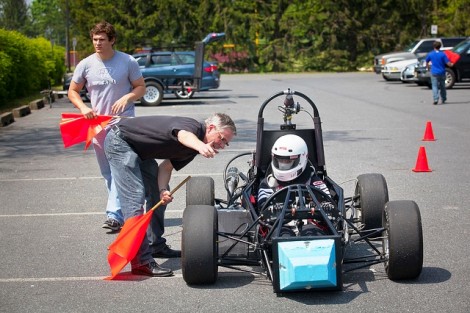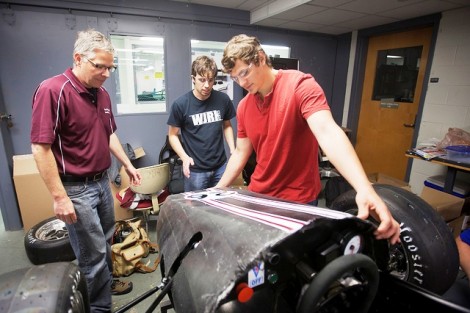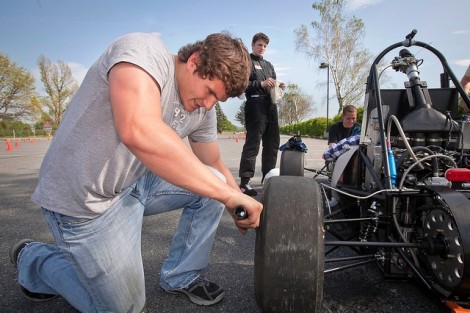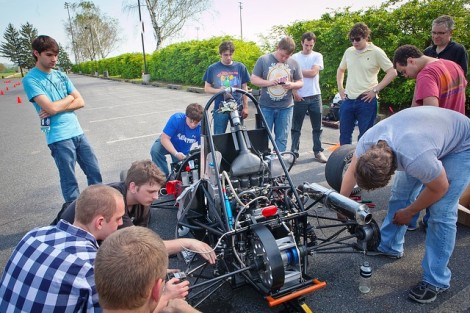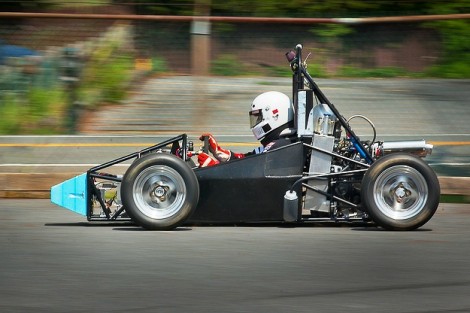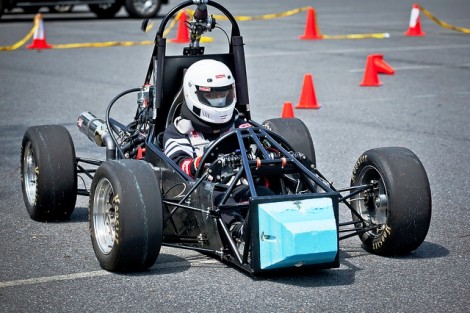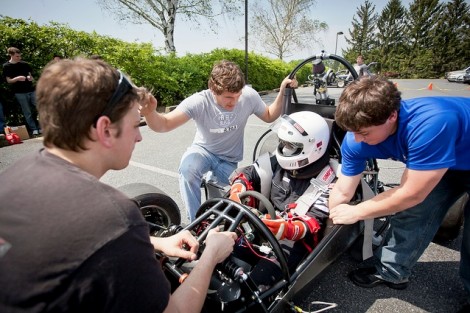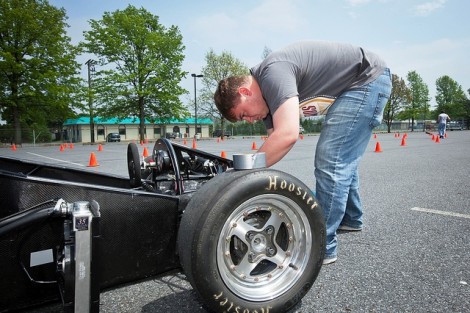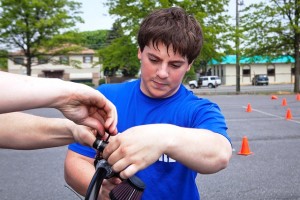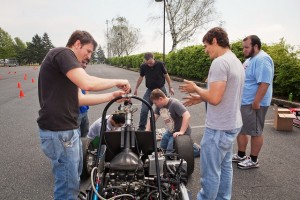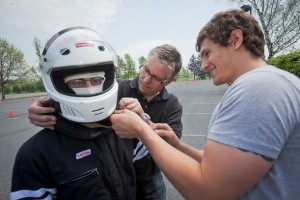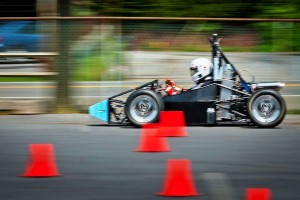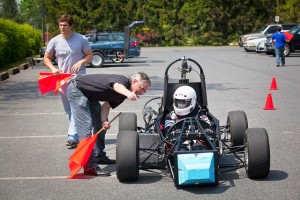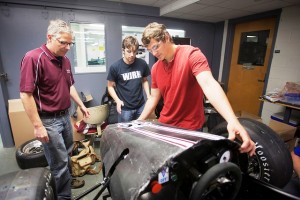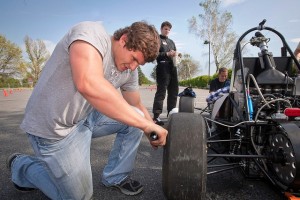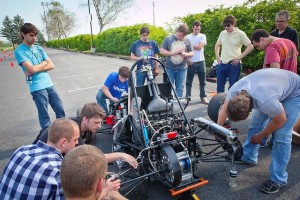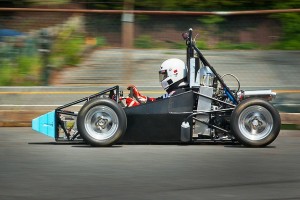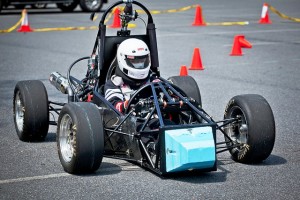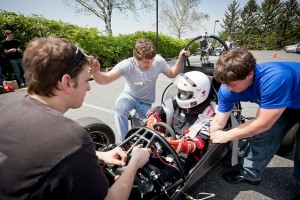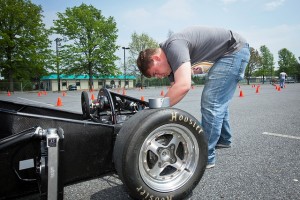Mechanical engineering majors came together this past year for a senior design project where they planned, constructed, and raced a car in the Society of Automotive Engineers (SAE) international competition.
“The students design the car from the wheels in. This is a major challenge for our students because none of them have ever designed a car before,” says project adviser Scott Hummel, interim Jeffers Director of Engineering and professor of mechanical engineering. “They need to do a ton of research into race car dynamics before they can begin. A high-performance car has many systems including the drive train, chassis, suspension, brakes, cockpit, fuel, cooling, and electrical, among others. All of the systems must be integrated together. That’s where the teamwork really comes into play.”
View and share more images of the race car project on Flickr
The team meets every week during the school year for a design meeting. Every member provides an update on progress and decisions are made on the integration of the systems.
This year the competition was sponsored by Ford, GM, SolidWorks, and AutoDesk, among others. At the event these sponsors host large recruiting sessions where students can speak directly with companies looking for young talent.
John Fasano ’12 was always interested in cars and racing, and the Formula SAE project was one of the things that attracted him to Lafayette.
“This project was very hands-on and seemed to offer the most real-life experience because we had to deal with outside vendors and sources along with the College,” says Fasano, who received a sponsorship from Orange County Choppers and was able to work in its shop for a day. “This would not have been possible on any other project.”
Sam Philipp ’12 enjoyed the project because of what it taught him about group work.
“The Formula SAE competition stood out as a technical challenge and a fantastic opportunity to learn about and work on each of the systems necessary for a successful automobile,” he says. “I think the most important experience I gained will be from working in a professional engineering environment. Between our team meetings, collaborations, and intense efforts to meet deadlines, every team member felt the pressure of high expectations. There’s nothing like the pressure of a yearlong engineering project with a diverse group of classmates to teach effective group work.”
Hummel believes that the makeup of the team will change in future years.
“We have begun to expand our team to include majors from across the campus,” he says. “We need economists to analyze the profitability of the company. We need artists for the car’s graphics and the sales literature.”
In the future, the team plans on growing even more by working on a new hybrid-formula car.
“Instead of building a conventionally powered (gas) car, we can now build a hybrid-electric car,” says Hummel. “The hybrid competition has a large sustainability component. To successfully compete in this new field we are going to need to include policy studies majors and government and law majors to look at the project in a broader sense. Engineers are not going to be able to decide on components based solely on performance. They are going to need to have input from teammates on sustainable manufacturing practices and worker conditions in the factories building the components.”
According to Hummel, alumni who have participated in the formula car project have gone on to work at companies ranging from medical device firms to Wall Street, and very few end up in the automotive industry. He says the engineering, management, and soft skills the students learn from the experience are directly transferable to any field.
Fasano works as a manufacturing engineer in the aerospace industry in Middletown, N.Y. He says, “Even though this is not the automotive field, the experience I gained on the formula team proves valuable every day.”
Other team members were Bill Binder ’12, Chris Boyce ’12, Shane Chalupa ’12, Geoff Ferguson ’12, Chris Hassler ’12, Andrew Koch ’12, Justin Lam ’12, Mike Lewis ’12, Steve Lowinger ’12, Nick Moneta ’12, and Brian West ’13.
